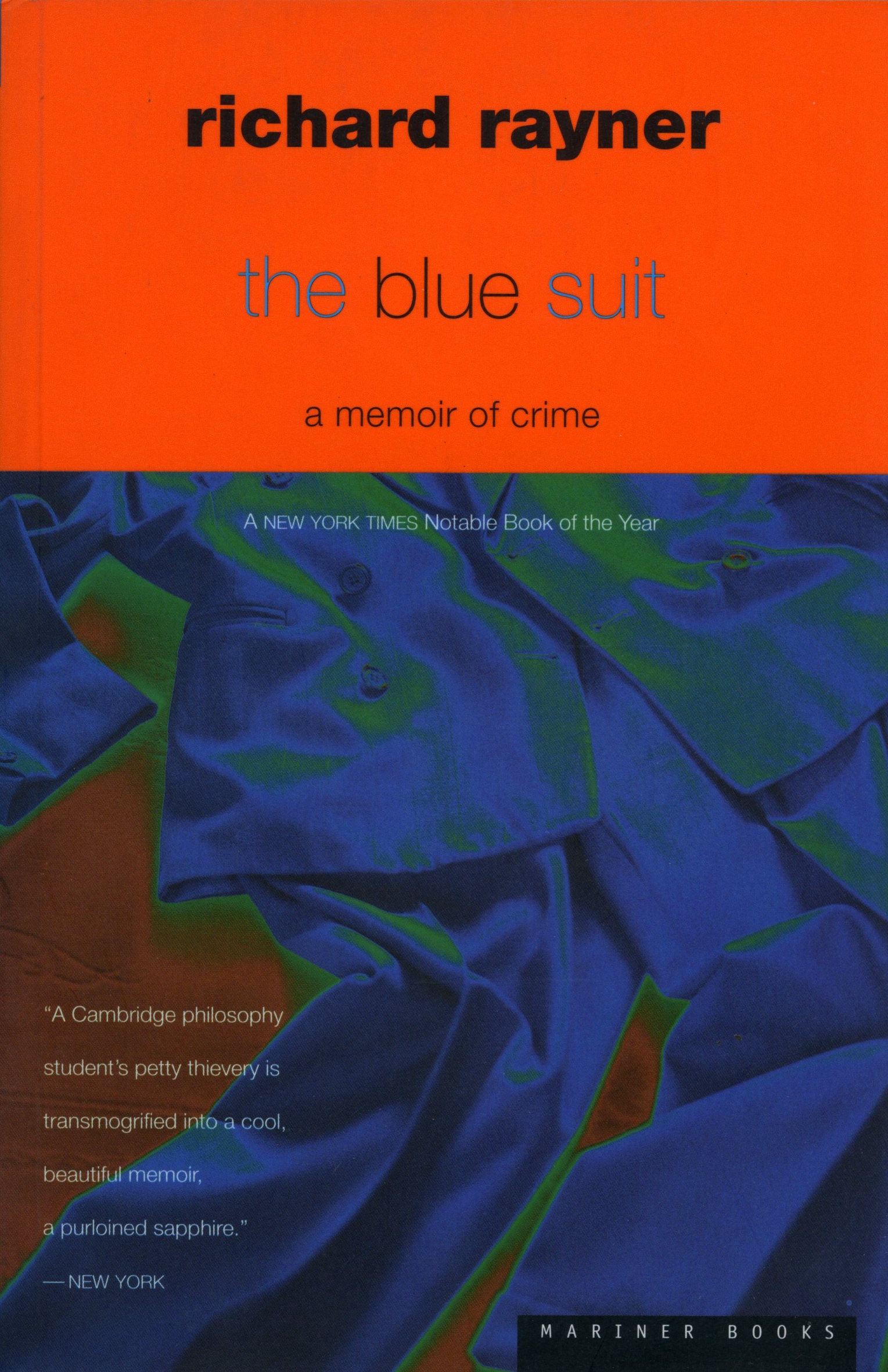
Richard Rayner's first book of nonfiction, Los Angeles Without a Map, was hailed by the New York Times as a classic. His second, The Blue Suit, is equally compelling and, for its intensity and honesty, deserves comparison with Geoffrey Wolff 's The Duke of Deception and Frank Conroy's Stop-Time. This is a story about the absence of identity. Rayner had a peripatetic childhood, but it seemed he found some sense of place when he attended Cambridge University in the mid 1970s. Far from affording security, however, Cambridge - combined with the study of philosophy and an obsession with books - was the setting for the start of a bizarre life of crime. Mounting debts propelled the author into a series of frightening, foolish, and hilarious adventures. He plundered bookshops for elusive first editions, forged checks, broke into houses, and acted as accomplice in a Keystone Kops-like attempt to rob a local bank. Seventeen years later, Rayner tries to come to terms with this long-buried nefario.
The New York Times: Books of the Times; Portrait of the Artist as a Writer and a Crook
At first glance, the hero of "The Blue Suit" seems like that most familiar of literary types: the sensitive young Englishman who loves to read books and dreams of becoming a writer. He attends the typically awful boarding school, described in typically exquisite prose, and suffers the requisite adolescent agonies before discovering a glittering new world at Cambridge, where he studies philosphy and law. From there, it's on to London, where there are "Vile Bodies"-like encounters with lots of rich young things and long afternoons spent in the reading room of the British Museum. A first novel is planned, and a pretty young woman is pursued.
The hero of this entertaining book, however, also has a secret self, a not-so-pretty persona that will get him into a lot of trouble. Unbeknownst to his friends, Richard has lied about most of his past: he has invented a fictional father, made up some phony siblings and told all manner of lies. What's more, he has become a forger and a thief, a youthful doppelganger of his own con-man father, an inveterate dreamer lost in Walter Mitty fantasies of playing Zorro or James Bond.
Richard is supposed to be a self-portrait of the British writer Richard Rayner, the author of this so-called memoir, though given Richard's propensity for lying -- and the glossy seamlessness of his stories -- the reader often wonders just how much of this book is really true. At one point, after all, Richard tells his father that he intends to "play fast and loose with the facts" of both their lives.
The New York Times: A Gentleman, a Scholar, a Thief
The Cambridge University attended by Richard Rayner in the mid-1970's, and by me some years later, was a place where intellectual matters often took a back seat to the weighty and nerve-racking business of postadolescent self-invention. Some students went the literary route, with corduroy jackets and afternoon play readings by the river, while others chose the "Hooray Henry" persona and braying in restaurants. The options, like the summers, appeared endless: punk and veganism or blazers and boating, white tie, black tie, thespian, politico, bohemian, baby don, poet, drunk or any combination of the above.
The university was, as Mr. Rayner writes, a "vast cocooning fabric" where "it was possible to be anything," a hothouse peopled by clever young things full of promise and self-doubt, and craving identity: we were privileged, callow and, in retrospect, pretty insufferable. Mr. Rayner arrived at Cambridge from a shattered middle-class family that included a jailbird father; he came with a good mind, a bad dose of gnawing insecurity and the firm conviction that he was cut out to be something very special indeed. He was. He became a crook.
"The Blue Suit" is a confessional criminal memoir, a strange self-exploration and a lament on the absence, invention and rediscovery of self. Mr. Rayner went to the bad via books. From the start, he was the lead character in his own crime novel; both in the doing and the telling, his criminal history is avowedly and self-consciously literary.
From Entertainment Weekly: The Blue Suit: A Memoir of Crime
THE BLUE SUIT: A MEMOIR OF CRIME Richard Rayner (Houghton Mifflin, $19.95) Cambridge University student Rayner was already an accomplished bookstore thief in the mid-1970s (lots of first editions) when he was told he must pay £652.75 in school fees or forfeit his degree. Did he get a job in a local alehouse? No, he decided to forge checks. Rayner would come off as a total nut if this memoir weren’t so eloquently written. As he attends prestigious Cambridge, then goes to London to seek his fortune writing book reviews, he is also honing his criminal skills: shoplifting, breaking and entering, forgery. Rayner’s conversational, comic writing is reminiscent of a youthful Martin Amis, and you can’t help but admire how this stone-hearted criminal carves out his own path of savage humor and fierce irony. Rayner’s just a smart, funny bloke, telling you his life story over a pint of Guinness at the corner pub, and making you laugh your head off.
Available on Amazon.